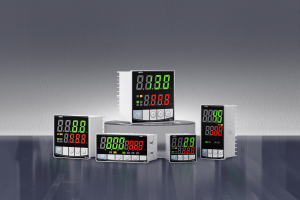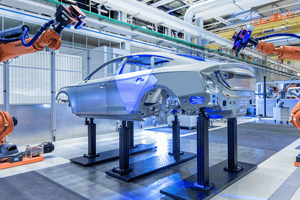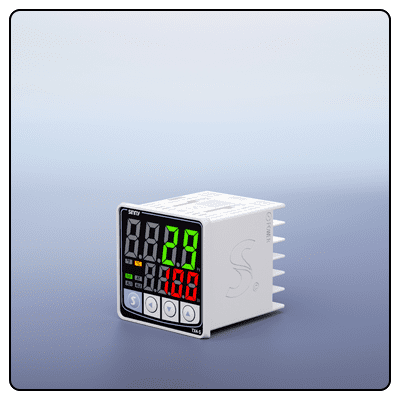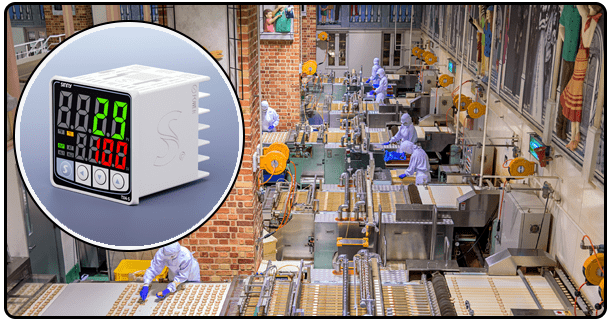Case Studies on Advanced Temperature Controllers Improving Industrial Efficiency
Results:
Explore how advanced temperature controllers improve industrial efficiency through real-world case studies, while learning the benefits of precise temperature management across industries.
1. Introduction
Temperature controllers play a pivotal role in industrial processes, providing accurate temperature regulation to optimize performance and safety. By maintaining consistent temperatures throughout production processes, temperature controllers help increase product quality while simultaneously decreasing energy use, thus improving operational efficiencies overall. In this article we explore several case studies where temperature controllers have dramatically enhanced industrial efficiency through real world applications and benefits.
2. Case Study 1: Precision in Heat Treating Furnaces
Background:
Clifford-Jacobs, a producer of die forgings, had experienced difficulty with inconsistent results and outdated process controls in their heat-treating furnaces, leading to inconsistency of process performance as well as failing to meet stringent industry standards. They required an improvement solution that could ensure process reliability while meeting stringent industry specifications.
Solution:
The company upgraded to Watlow F4T controllers paired with SpecView SCADA software in order to implement an improved temperature control system, offering features such as remote operation, secure operation, accurate automatic temperature recording and accurate temperature recording capabilities.
Results:
Clifford-Jacobs achieved significant process consistency and efficiency gains thanks to their new system, meeting customer demands more effectively while meeting industry standards while saving costs by retrofitting existing equipment rather than investing entirely new systems.
3. Case Study Energy Efficiency in Industrial Boilers for Production Facilities
Background:
A manufacturing plant employing industrial boilers struggled with excessive energy use and ineffective temperature regulation, increasing operational costs while decreasing efficiency. They sought ways to both decrease operational expenses while increasing their energy savings potential.
Solution:
The plant implemented energy efficiency improvement strategies by upgrading to advanced temperature controllers that provided better insulation and control algorithms that improved boiler performance.
Results:
The upgrades led to significant reductions in energy usage and operational costs while improving its environmental footprint. Their increased reliability and performance also allowed smoother operations with reduced downtime for smoother operations and reduced operational downtime.
4. Case Study Temperature Maintainence in Industrial Ovens
Background:
An organization using industrial ovens for manufacturing encountered issues maintaining consistent temperatures across multiple zones in their oven, impacting product quality and process efficiency negatively.
Solution:
The company developed and deployed a new control system for managing multiple temperature zones using quartz glass panel heaters with individual limits. Communication was available with PLC and HMI systems for effortless replacement of failed components.
Results:
The new control system improved temperature consistency and control in all zones. Additionally, this upgrade increased flexibility and maintenance ease - significantly improving overall manufacturing process efficiency.
5. Case Study 4: Precision in Pharmaceutical Manufacturing
Background:
A pharmaceutical company required precise temperature regulation in order to meet product quality and regulatory compliance demands, yet were encountering challenges in reaching consistent temperature management across their existing systems.
Solution:
The company deployed advanced PID temperature controllers that provided real-time monitoring, data logging and alarm systems ensuring precise temperature management as well as prompt responses in case of deviations or any anomalies. This enabled fast reaction times should any deviation occur and also ensured timely responses should deviations arise.
Results:
Advanced PID controllers provided superior product quality and consistency while meeting regulatory standards, in addition to reduced waste production efficiency improvements that led to overall operational improvements for the company.
6. Conclusion
These case studies highlight the numerous advantages associated with modern temperature controllers for industrial environments. From improving process consistency and energy efficiency, to improving product quality and regulatory compliance, temperature controllers play a vital role in optimizing industrial operations. Investing in advanced temperature solutions may result in substantial efficiency increases, cost reduction, and environmental sustainability gains.
- Common Problems with Temperature Controllers and How to Solve Them
- What Are Industrial Temperature Controllers, Their Types, Benefits & Applications























